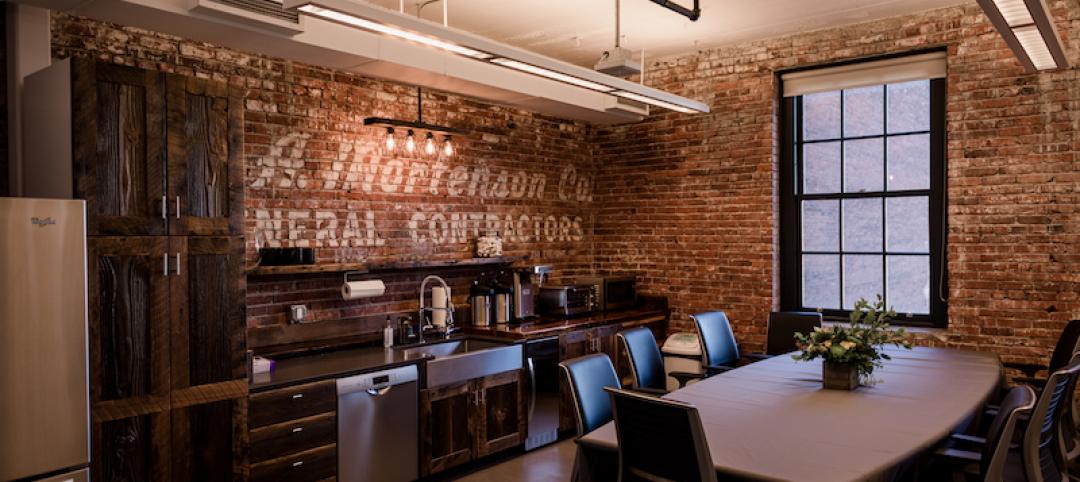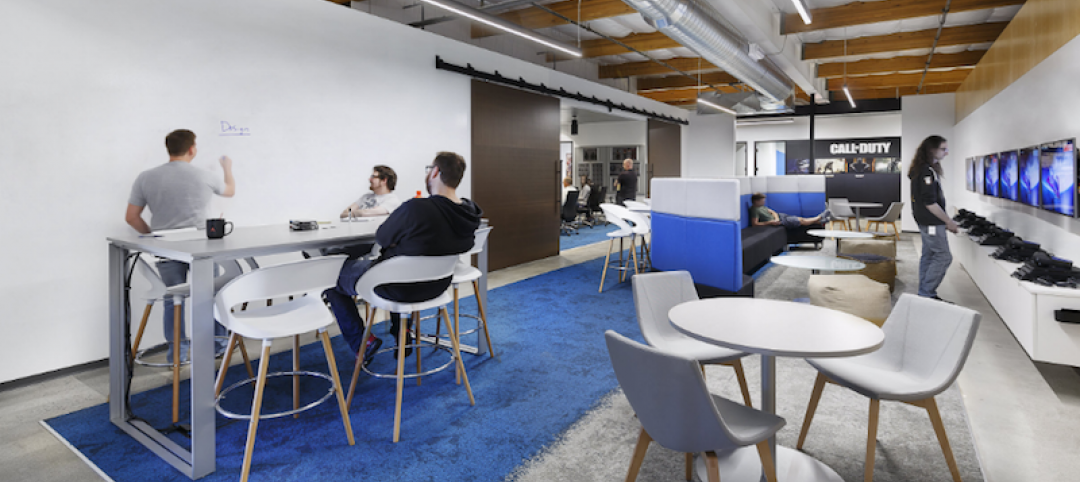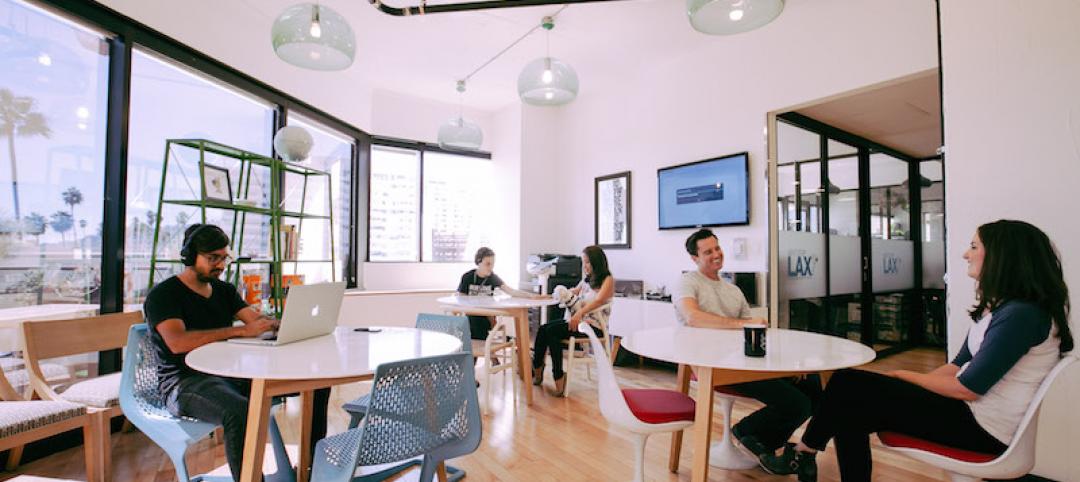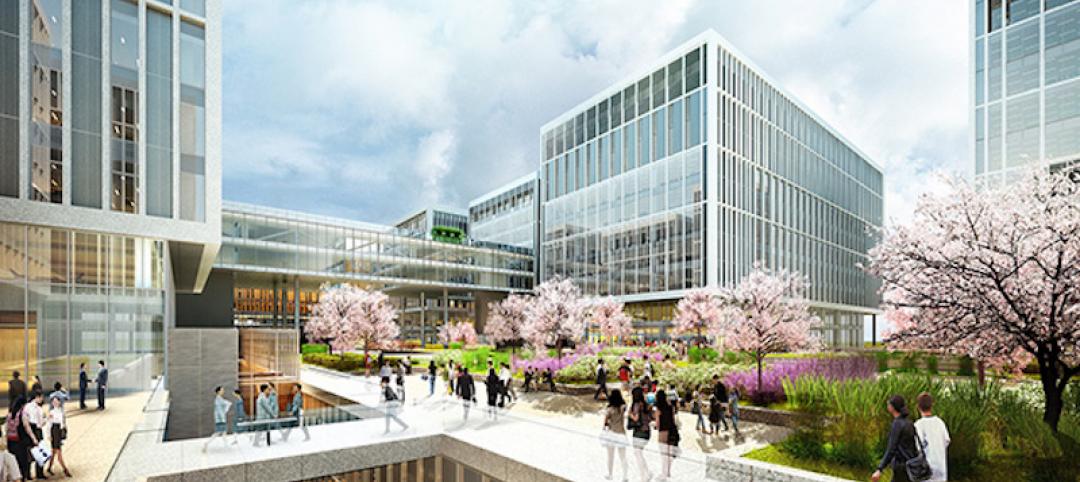The intensifying race to find and keep talent in an increasingly competitive digital business environment have enabled employees to reshape the workplace in their image, including access to a flexible work environment and schedule, overall health and well-being programs, childcare, meal services, and sustainability initiatives.
And the latest data show that employers now see that these investments are critical to their workers’ business performances.
These are among the findings from new “future of work” research, conducted by JLL and Harvard Business Review, which previewed at the World Economic Forum in Davos, Switzerland, last January.
A poll of 342 executives found that 83% agree that an attractive and flexible work environment is essential to attract and retain the talent they need to innovate and deliver business value in a competitive digital business environment and tight labor market.
More than half of the organizations these executives represent (57%) rate “human experience” as a top priority. “When we talk about human experience in the workplace, it’s really a recognition that, first and foremost employees are human beings with full lives beyond work that encompass friends, families, and varied interests, passions, and commitments,” states the authors of this research report. “So human experience efforts focus on improving how fluidly workers can integrate all of these pieces of the puzzle.”
This thinking is in line with a recent story in the New York Times that examined how wellness initiatives were ramping up in workplaces across the country. Corporate Wellness Magazine’s website also recently ran an article about how offices are merging tech and design for workplace wellness.
Over the past two years, almost one-third (32%) of JLL/Harvard survey respondents adjusted workplace design as a means to enhance the employee’s experience on the job. Another 31% adjusted workplace policies to accommodate flexible work schedules and working remotely.
And 53% of organizations plan to invest in human experience over the next two years. In that effort, more organizations are seeking their employees’ feedback and changes regarding workplace changes.
Already, more than half (53%) of respondents provide workers with the digital technology they need to work remotely or on a flexible schedule. And more than two-fifths of respondents have been customizing tis technology to employee preferences, by providing options to accommodate different people’s work styles and preferences.
A strong majority of respondents also place as a top priority the development of programs to support their employees’ health and well-being. For example, 35% of organizations are providing workplace amenities such as childcare and meal services, and 24% of organizations offer onsite recreation equipment.
Employee demand is also driving sustainability initiatives, say 55% of the organizations polled.
These efforts often result in more effective recruitment and retention. Because of their human experience initiatives, 36% of organizations report greater success retaining talent, 44% report improved employee morale, and 34% report improved productivity.
The research also found that:
•43% of organizations provide an appealing physical environment that fosters professional collaboration.
•42% offer new health and wellness benefits at little or no cost to employees.
•44% providing employees with opportunities, such as volunteer programs, to make meaningful social contributions unrelated to work.
The benefits from human experience initiatives include:
•greater brand image and recognition (29% of organizations polled).
•greater innovation (28%).
•greater visibility in the market and community (28%).
•greater customer satisfaction (27%).
•better relationships with suppliers and partners (21%).
•greater profitability (17%).
Related Stories
Reconstruction & Renovation | Jul 18, 2017
Mortenson Construction incorporates 100-year-old barn into new Portland office space
Mortenson deconstructed the barn and repurposed it for the new space.
Office Buildings | Jul 12, 2017
CetraRuddy unveils seven-story office building design for Staten Island’s Corporate Park
Corporate Commons Three is expected to break ground later this summer.
Sustainability | Jul 10, 2017
British Columbia receives its first WELL certified workplace courtesy of Perkins + Will
Over 100 wellness features are incorporated into CBRE’s Vancouver office.
Office Buildings | Jul 5, 2017
Do open offices work?
Whether for a team of 20 or 200, if today’s professionals are not currently working in an open office environment, a change is likely on the horizon.
Office Buildings | Jun 27, 2017
Bloomberg’s European headquarters wants to become a natural extension of London
Foster + Partners’ design rises 10 stories and is composed of two connected buildings.
Office Buildings | Jun 20, 2017
Mattress company’s new ‘BEDQuarters’ definitely won’t put employees to sleep
The HQ is packed with amenities and features to keep team members happy and engaged at work.
Building Team Awards | Jun 14, 2017
A space for all: Lighthouse for the Blind and Visually Impaired
Nonprofit HQ fitout improves functionality, accessibility for blind and low-vision individuals.
Office Buildings | Jun 13, 2017
WeWork takes on a construction management app provider
Fieldlens helps turn jobsites into social networks.
Building Team Awards | Jun 12, 2017
Texas technopark: TechnipFMC John T. Gremp Campus
Silver Award: TechnipFMC’s new campus marks the start of a massive planned community in north Houston.
Office Buildings | Jun 12, 2017
At 11.8 million-sf, LG Science Park is the largest new corporate research campus in the world
The project is currently 75% complete and on schedule to open in 2018.

















